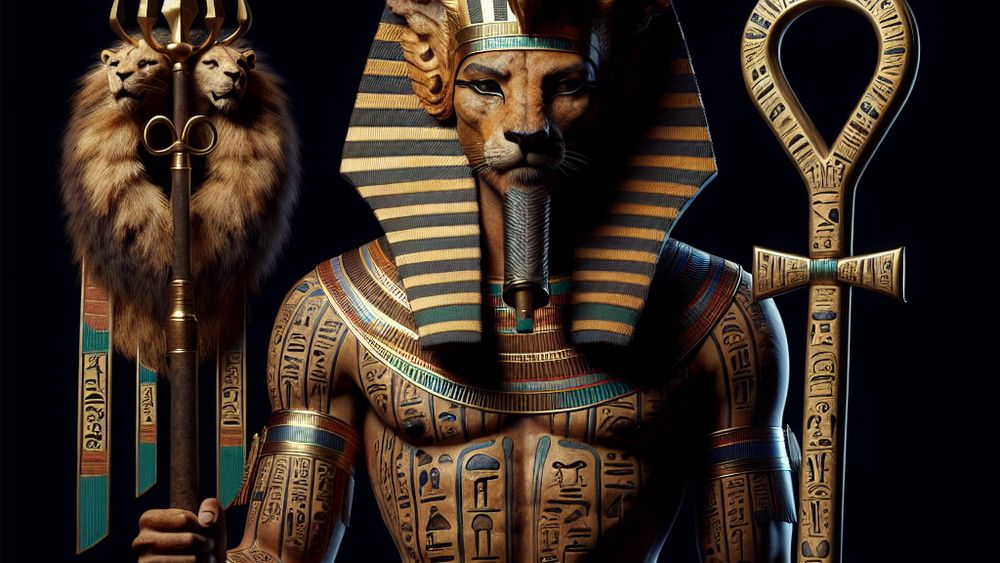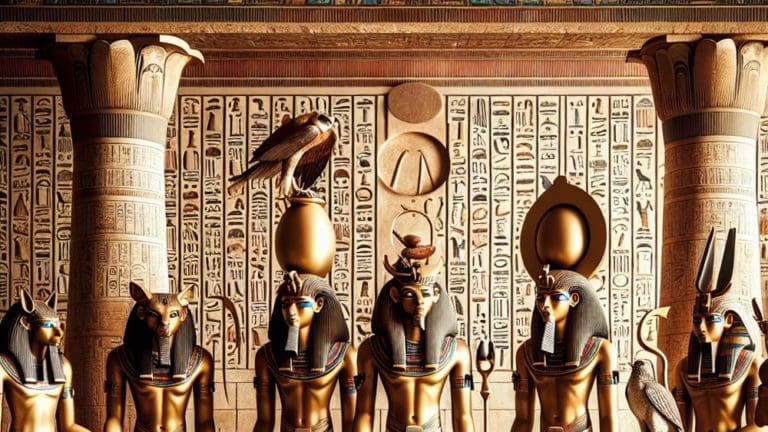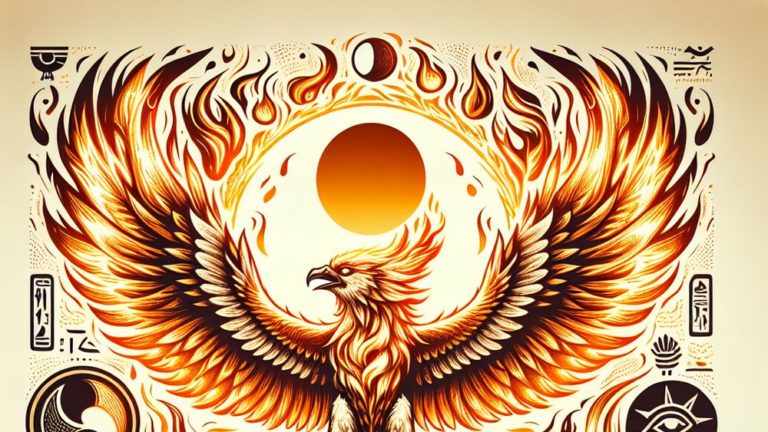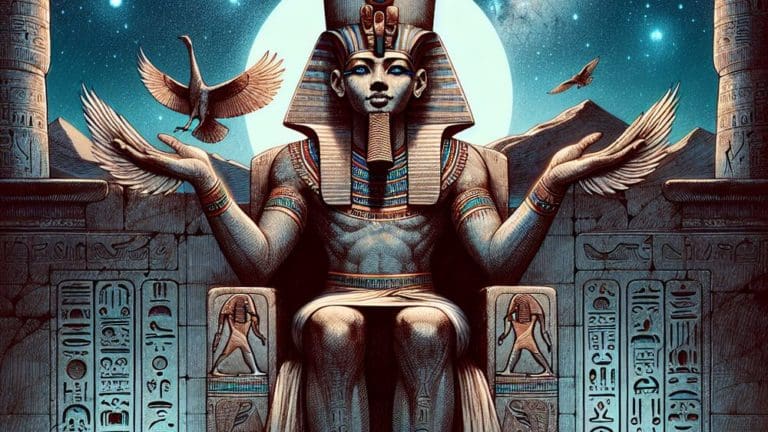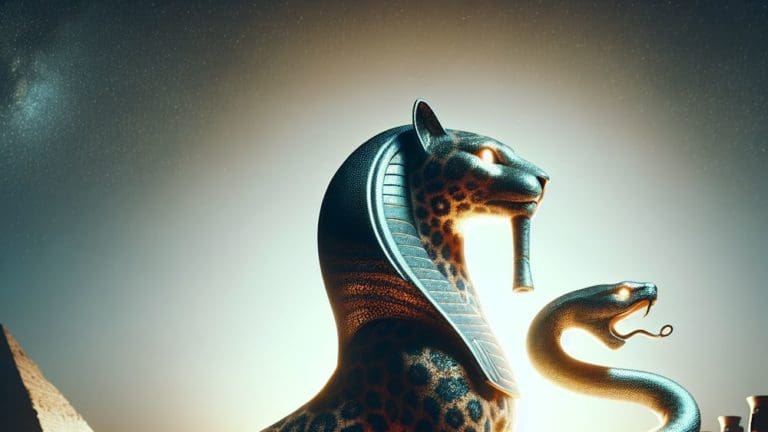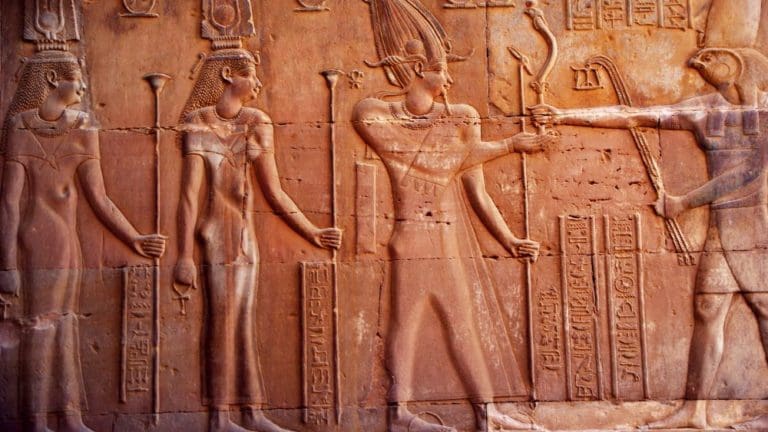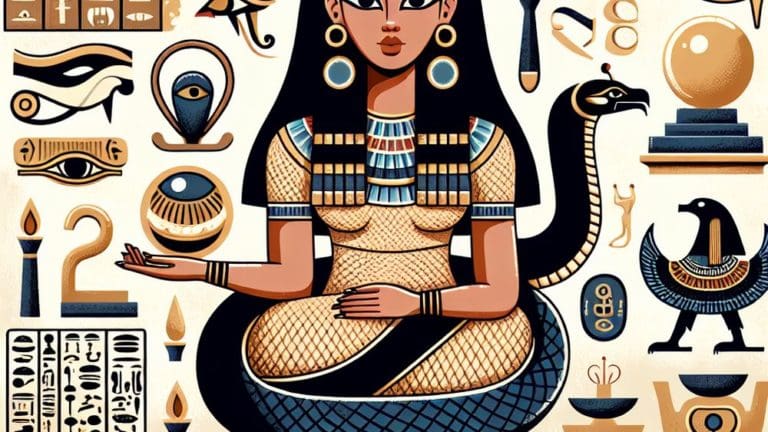Anhur: The Egyptian God Of Hunt And War Mythology
Anhur: The Egyptian God Of Hunt And War Mythology
Have you ever been captivated by the stories of ancient gods and goddesses, whose powers shaped the world as we know it? There’s nothing quite like diving deep into the myths and legends that have been passed down through the centuries. Anhur: the Egyptian god of hunt, invokes a particularly fascinating blend of qualities, embodying both the fierceness of a warrior and the precision of a hunter. This deity’s story is not just about power, but also about protection, skill, and the intricate relationships between gods and humans in Egyptian lore.
Key Points:
- Anhur is the Egyptian god of hunt and war, embodying both fierceness and precision.
- Anhur’s role includes being a protector, guide for hunters, intercessor, protector of Egypt, and symbol of royalty.
- Anhur was worshipped through symbols like spear, plumed headdress, lion’s skin, and four feathers.
- Anhur’s influence extended beyond Egypt, reaching into Nubia and other regions.
- Anhur was revered for his warrior skills and mastery in hunting, symbolizing strength and precision.
- Anhur’s worship involved festivals and rituals, reinforcing community bonds and invoking his protection.
- Anhur’s legacy endures through his representation of complex human experiences like protection and success.
The name Anhur carries a resonance through history, awakening a curiosity in us about the ancient practices, rituals, and beliefs of the Egyptian people. As we embark on this journey to explore the enigma that is Anhur, we can’t help but feel a thrill of excitement at the secrets waiting to be unearthed. How did a deity associated with war and hunting shape the lives of those who worshipped him? What mysteries and powerful tales are hidden beneath the sands of time? Let’s dive into the depths of ancient Egyptian mythology and uncover the stories behind Anhur.
Exploring the Dual Nature of Anhur
Anhur, a deity with a complex persona, embodies the ferocity of war and the meticulousness of the hunt. This dual nature creates a fascinating character within the Egyptian pantheon, offering insights into the fabric of ancient Egyptian society, where both war and hunting played crucial roles. What stories do these aspects of Anhur reveal about the values, fears, and dreams of the ancients? Join me as we delve into the mysteries of Anhur’s character, unraveling the threads that weave together a deity of such vibrant contradictions.
Anhur’s Role in Egyptian Mythology
In the rich tapestry of Egyptian mythology, Anhur holds a unique place as one of the protectors and patrons of ancient Egypt. His role was multifaceted, often overlapping with those of other deities but always maintaining a distinct identity rooted in his dual nature.
- God of War: Anhur was invoked for protection in battles, embodying the might and courage needed for victory.
- Patron of Hunters: He guided hunters, ensuring their precision and skill in the hunt.
- Intercessor: Anhur also acted as a mediator between humans and the divine, communicating prayers and offerings.
- Protector of Egypt: His strength was believed to secure the nation against external threats.
- Symbol of Royalty: Pharaohs often associated themselves with Anhur, drawing on his power and authority.
Anhur embodies protection, courage, mediation, and strength, making him a multifaceted symbol deeply rooted in Egyptian mythology.
The Warrior Aspect: Anhur as the God of War
Within the anals of Egyptian mythology, Anhur’s reputation as a formidable god of war stands out. His valor and strength on the battlefield not only made him a guardian of the sovereign state but also a symbol of the triumph of order over chaos. Wielding a spear and clad in a lion’s skin, Anhur represented the embodiment of bravery and martial prowess, attributes crucial to the survival and prosperity of ancient Egyptian civilization.

The tales of his conquests were not merely about physical battles, but also the spiritual struggles between good and evil. Anhur, in guiding pharaohs and warriors, ensured that the cosmos remained balanced and that Ma’at, the concept of truth and order, prevailed. Through his deeds, the ancient Egyptians found a source of inspiration and courage, a testament to the potent connection between deity and man in achieving greatness.
The Hunter’s Patron: Anhur’s Connection to the Hunt
The hunter’s arrow flies true under the watchful eye of Anhur, a testament to his guidance as the patron deity of hunters. This aspect of Anhur illuminates his intricate connection to nature and survival in the harsh landscapes of ancient Egypt. The act of hunting, elevated beyond mere necessity, becomes a sacred ritual, with Anhur providing the skill and precision required for success.
The relationship between Anhur and the hunt is not just about sustenance, but also about balance, underscoring the ancient Egyptian reverence for harmony between humans, nature, and the divine.
| Aspect of the Hunt | Connection to Anhur |
|---|---|
| Precision | Anhur’s guidance ensures that every arrow and spear finds its mark. |
| Protection | Hunters invoke Anhur for safety in their pursuit, reflecting his warrior aspect. |
| Skill Development | Dedicated to Anhur, hunters continually refine their abilities, emulating his excellence. |
| Spiritual Connection | The hunt, under Anhur’s patronage, becomes a bridge between the material and divine realms. |
Through the lens of the hunt, we see another facet of Anhur’s influence, reflecting the values and practices that shaped ancient Egyptian society. His role went beyond mere patronage; Anhur was a central figure in the culture’s endeavor to harmonize the elements of their world.
Anhur’s connection to hunting symbolizes the ancient Egyptian emphasis on balance and harmony between humans, nature, and the divine.
Symbols and Worship of Anhur
The ancient Egyptian deity Anhur, renowned as the god of war and hunt, was venerated through a variety of powerful symbols and elaborate ceremonies that resonate with enthusiasts to this day. His worship encompassed not just monumental temples but also intricate rituals that celebrated his dual nature, intertwining the ferocity of the warrior with the precision of the hunter.
Iconography and Symbols Associated with Anhur
Anhur, the Egyptian god of war and the hunt, is often depicted in a remarkably distinctive manner, which helps us identify and understand his importance and role in ancient Egyptian religion. His symbols and iconography carry deep meanings, reflecting his martial prowess and his guardianship over huntsmen.
- A spear or javelin: Symbolizing Anhur’s role as a skilled warrior and hunter.
- A plumed headdress: Representing his connection to the wind and speed, vital attributes for both war and hunting.
- Lion’s skin: Denoting strength and power, linking him to the ferocity of the king of beasts.
- Four feathers: Often associated with Anhur’s name, signifying air and heights, domains over which he held sway.
These symbols not only adorned temple walls and papyri but were also integral to the rituals and festivals dedicated to honoring Anhur. They evoke the deity’s vast influence and multifaceted nature, allowing followers to seek his protection in both battle and the hunt.
Centers of Worship and Festivals
The worship of Anhur was predominantly centered in ancient Egypt, with significant temples and festivals showcasing the deity’s importance to the Egyptian people. Key locations and celebrations drew devotees from far and wide, illustrating Anhur’s revered standing in the pantheon.

- Thinis: Anhur’s primary cult center, where the god was worshipped as a chief deity.
- Sebennytos: Another significant location that held reverence to Anhur’s mighty prowess.
Festivals in Anhur’s honor were grand events that not only paid homage to the god but also reinforced community bonds. The most prominent festival, the Feast of Anhur, was marked by rituals emulating hunts and battles, symbolically invoking the god’s protection and blessings over the participants and the wider community. These celebrations were vital to maintaining the favor of Anhur and ensuring his continual guardianship over the people.
Anhur’s worship in ancient Egypt involved grand festivals and rituals that reinforced community bonds and sought the deity’s protection and blessings.
Anhur’s Influence Beyond Egypt
Anhur’s influence stretched far beyond the borders of ancient Egypt, reaching into Nubia and other regions, where he was revered as a powerful protector and warrior deity. His reputation as a master hunter and invincible warrior made him a sought-after god among neighboring cultures.
In Nubia, Anhur was assimilated with local deities, showcasing the fluid nature of gods and goddesses in the ancient world, where political and trade relations often led to cultural exchanges. This integration highlights the universal aspects of Anhur’s character, appealing to the common human desire for protection and success in conflict and subsistence. Through such cross-cultural reverence, Anhur’s legacy has been preserved, illustrating the enduring appeal of deities who embody the complexities of human experience.
FAQs
1. How did Anhur become associated with both war and hunting?
Anhur became associated with both war and hunting through the dynamic interplay of his characteristics. As a deity, Anhur possesses fierce qualities that made him a protector of Egypt and a master of the hunt, symbolizing strength and precision in both arenas.
2. What are the most famous myths involving Anhur?
The most famous myths involving Anhur include his epic battles and his role as a divine huntsman. One particular narrative highlights his journey to Nubia, where he used his warrior skills to oversee the lands, blending his aspects of war and the hunt.
3. How was Anhur worshipped by the ancient Egyptians?
Anhur was worshipped by the ancient Egyptians through festivals and offerings at temples dedicated to him. His valor and strength were celebrated, especially in cities where his presence was believed to protect and guide the community in both spiritual and physical realms.
4. Can Anhur’s influence be seen in modern times?
Anhur’s influence can indeed be seen in modern times, particularly in the lasting legacy of Egyptian mythology and its continued study. His characteristics inspire modern narratives about strength, protection, and the hunt, reflecting his enduring presence in cultural memory.
Conclusion
In exploring Anhur: the Egyptian god of hunt, we travel across the sands of time to uncover the layers of mythology that have fascinated historians, travelers, and enthusiasts alike. Through stories of valor, symbols of strength, and rituals of worship, we connect with a past where gods like Anhur shaped the destinies of nations and the lives of people. Our journey through the myths and legends of Egypt reminds us of the timeless allure of uncovering the hidden and understanding the profound. As we bid farewell to the ancient world of Anhur, let’s carry forward the spirit of exploration and curiosity. Until next time, keep the mysteries of the past alive. – Cedric

